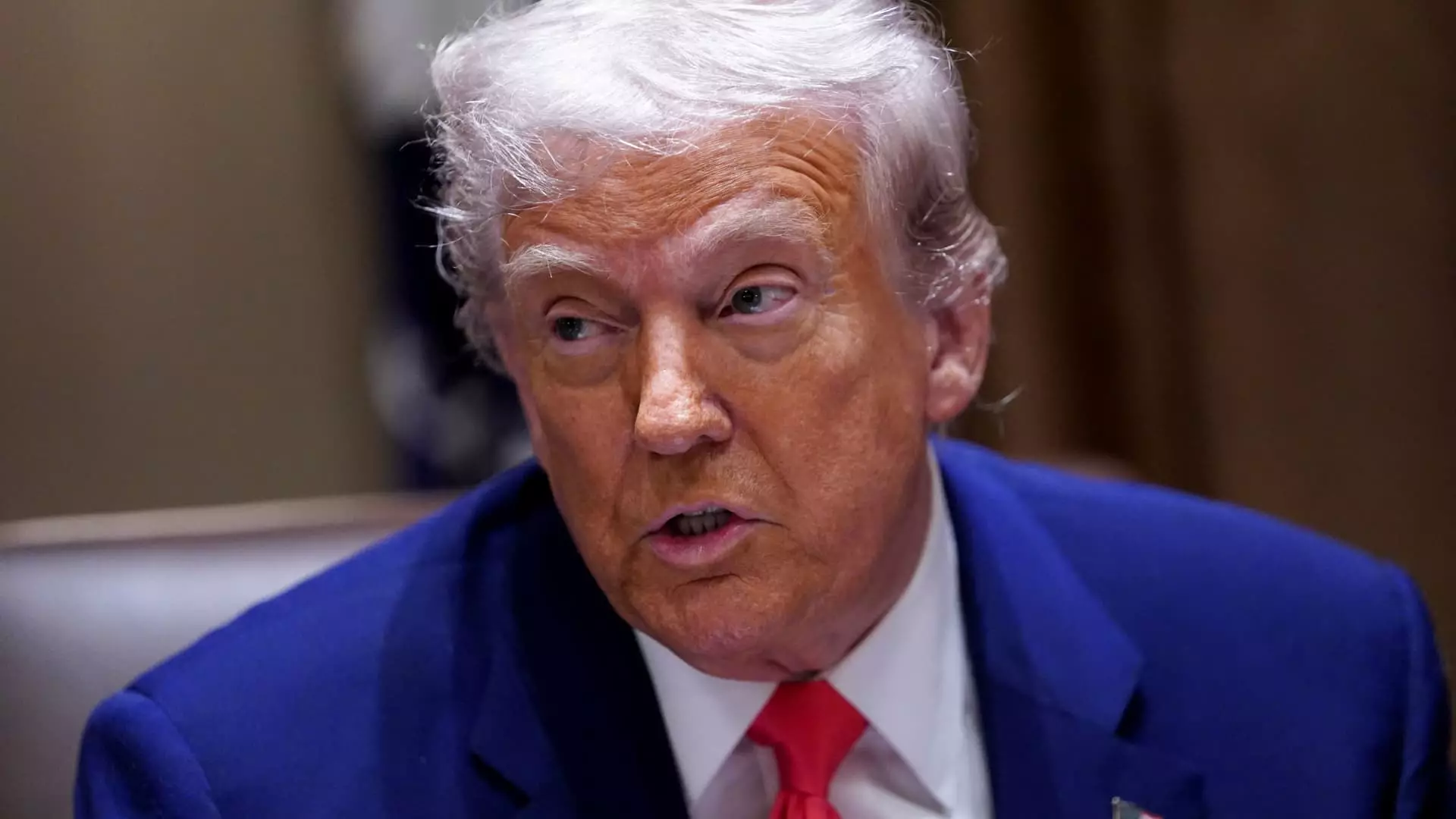In a striking move that appears to upend the very framework of international trade, President Donald Trump’s recent imposition of a staggering 145% tariff on Chinese imports has ignited widespread concern among economists and business leaders alike. This unprecedented rate signals a potentially cataclysmic shift in U.S.-China relations, threatening to sever the delicate thread that binds both economies. As economist Erica York indicates, such exorbitant tariffs could culminate in a near-total collapse of trade between the world’s two largest economies, fundamentally altering the landscape of global commerce.
The ramifications of this decision extend deep into the economic fabric of both nations. While some industries may endure, relying on imports that are deemed irreplaceable, the vast majority will inevitably feel the pinch of these steep tariffs. What many overlook is that the trade war does not simply concern numbers and percentages—it embodies a profound ideological battle over free trade, protectionism, and economic interdependence.
Market Reactions: The Ripple Effect
The financial markets responded predictably to Trump’s announcement, with significant declines following the confirmation of the new tariffs. Wednesday’s market gains were evaporated almost overnight, demonstrating a clear lack of investor confidence in the administration’s approach. Once the 145% tariff was formally unveiled, the market tumbled further, shedding billions in a matter of hours.
York’s assertion that the market is “not in the clear” serves as a somber reminder that traders must navigate an environment fraught with uncertainty. With no resolution in sight and a scheduled review of tariffs looming in July, businesses are left in a state of limbo—an untenable situation that hampers planning and investment. So long as the threat of escalating tariffs hangs overhead, economic predictability remains a distant mirage.
The Implications of Protectionism
Trump’s protectionist policies mark a historical pivot toward isolationism that disrupts decades of globalization. The administration’s tariffs could lead to increased prices for consumers, causing what was once a hallmark of American economic strength—spending power—to dwindle. As tariffs raise the cost of goods, the burden will inevitably shift to the everyday American, who may find essential products suddenly priced beyond reach.
Additionally, the implications extend to the larger global market. With China’s retaliatory tariffs on U.S. imports now approaching 84%, a tit-for-tat escalation seems inevitable. What began as a unilateral decision by the U.S. is now evolving into a broader conflict that threatens to affect economies worldwide. The interconnected nature of global supply chains means that disruptions in one part of the world inevitably resonate elsewhere.
Tax Burden or Revenue Boost?
The Tax Foundation’s estimate that the new tariff regime will result in an unprecedented increase in federal tax revenues presents a perplexing paradox. While the projected $171.6 billion boost to federal coffers could be viewed as an admirable feat, the reality is far more complex. This taxation mechanism will not only burden consumers but could also inhibit economic growth, stifling the very engine of innovation and progress that this nation has historically prided itself on.
The comparison of these tariffs to the largest tax hike since the early ’90s raises critical questions about what this means for the future of fiscal policy in the United States. An increase in taxes derived from tariffs may serve as a temporary fix for governmental funding but at what cost? The long-lasting impressions on consumer spending, manufacturing, and trade partnerships could erode economic stability well into the future.
A Call for Sensible Trade Policies
As we grapple with the implications of Trump’s aggressive tariff policies, it is essential to advocate for a more balanced approach to trade. The notion that isolationism can effectively safeguard American jobs is an illusion; history reveals that interconnected economies foster innovation, drive competition, and ultimately lead to shared prosperity.
In the chase to nurture domestic industries, we must resist the siren call of short-sighted protectionism and instead aim for comprehensive trade agreements that promote fairness and reciprocity. Leaders should prioritize diplomacy over division, working to create a climate where cooperation rather than confrontation leads the way to economic growth. Because the stakes are far too high; our future depends on it.

